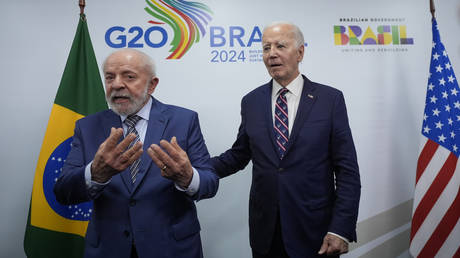Real-time translation is a business product breakthrough

Recently, Google dropped a quiet but monumental announcement: Google Meet will soon support real-time translation. It may seem like a product feature update, but it’s actually a glimpse into the future of how the internet and global business will function. We’re on the cusp of a world where every conversation on the internet, regardless of language, can happen in real time. And that changes everything.
For B2B enterprises, this isn’t about novelty. It’s about unlocking collaboration, creativity, and commerce at a global scale.
Language won’t be as big of a limitation
Language has long been one of the final friction points in cross-border collaboration. Even as video calls and messaging platforms brought teams closer together, they still relied on a common language, most often English, as the conduit. That created limitations on who could participate, how much nuance was retained, and how ideas flowed.
With real-time translation, we move from a world of adaptation to one of direct contribution. Suddenly, a designer in Buenos Aires, a strategist in Nairobi, and a developer in Tokyo can jump into the same conversation without stopping to translate or interpret. Everyone speaks, and is understood, in their own language.
This isn’t just a productivity boost. It’s a structural shift in how we think, ideate, and build together.
Collaboration without borders
What happens when you remove the communication tax from global teamwork? You get more voices in the room. More diversity in thought. More creativity, sparked by perspectives that were once hard to access in real time.
Enterprise companies will be able to:
- Run global design sprints with fully multilingual teams
- Support customers in their native language with real empathy
- Develop cross-cultural products with richer user insights
The internet becomes not just a place to publish or consume, but a space to co-create. Together. Instantly.
Here comes a new kind of global enterprise
This technological leap doesn’t just make business more efficient—it makes it more human. Companies will no longer have to localize after the fact. They’ll build global from day one, with the input and collaboration of people around the world.
Imagine:
- Sales teams conducting live pitches in any language, without intermediaries
- International vendor partnerships operating in sync, not in silos
- Internal documentation, onboarding, and training auto-translating in real time
This is about scaling relationships, not just transactions.
Culture, context, and the human layer
Of course, language is more than just words. It’s culture, tone, idioms, and nuance. Real-time translation won’t always get that right. And that’s where intentional leadership comes in.
Companies will need to:
- Equip teams with cultural fluency alongside technical fluency
- Stay alert to how AI translation might flatten or distort meaning
- Create norms and rituals that preserve empathy and clarity
Technology can connect us instantly. But connection without understanding is just noise. The opportunity lies in blending speed with sensitivity.
What B2B enterprises can do today
Real-time translation is arriving fast. To stay ahead, enterprise leaders can:
- Audit your communication tools: Are they ready for multilingual functionality?
- Rethink your hiring lens: Global talent is no longer gated by English fluency
- Train teams to collaborate across cultures, not just across time zones
- Start small: Pilot real-time translation in internal meetings or support channels
- Be prepared for errors…
The future of work isn’t just distributed—it’s multilingual, multicultural, and massively connected. Real-time translation is the infrastructure that will make it all possible.
Remember technology should elevate human connection, not replace it. Real-time communication, across every language, brings us closer to that vision. Not just faster meetings or wider reach, but deeper collaboration, richer relationships, and a more inclusive world of work.
The internet just got a lot more fluent. Let’s build what comes next.
George Brooks is founder and CEO of Crema.
What's Your Reaction?
 Like
0
Like
0
 Dislike
0
Dislike
0
 Love
0
Love
0
 Funny
0
Funny
0
 Angry
0
Angry
0
 Sad
0
Sad
0
 Wow
0
Wow
0




























































































